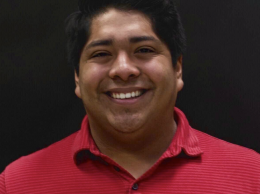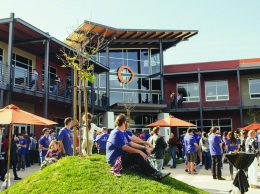Editorial: Highway 101 innovation corridor needs public-private partners
The Tri-Counties is edging toward a more collaborative approach to regional economic development, at least as far as generating more energy around startups is concerned.
The idea of creating a Highway 101 innovation corridor got a jump start on Nov. 21 when a group of entrepreneurs and supporters of entrepreneurship gathered at UC Santa Barbara. The meeting was the result of considerable spadework by State Sen. Hannah-Beth Jackson, D-Santa Barbara, and her staff, who have visited with many of the organizations promoting entrepreneurship in the Tri-Counties. Dubbed the “SLO to T.O.” corridor at the meeting, the group included representatives from UCSB, California Lutheran University, Santa Barbara City College and CSU Channel Islands.
Among the more thoughtful presentations was a concept advanced by Mike Panesis, head of the UCSB Technology Management Program. He suggested the group not try to plot a formalized structure but rather continue to build informal networks along the lines of what’s been happening in Boulder, Colo., which is viewed to be one of the more successful startup hubs in the Western U.S.
But Panesis also suggested that some research into the types of startups being generated and their greatest needs might be helpful in steering an amorphous and ever-changing effort.
In particular, he added, a working group will need to address the problem of what to do with companies that are successful and begin to outgrow the 200-person sweet spot that seems to be about the maximum size for tech companies, especially those in the real-estate constrained South Coast corridor.
Any group must also meet the needs of a broad range of entrepreneurs, including women, an emerging generation of Latino startups and a wide array of industries.
It’s clear that from Agoura Hills through Ventura in Ventura County and from Santa Barbara to Santa Maria and San Luis Obispo, the startup movement is taking hold. It holds out great promise for the future.
But as serial entrepreneur Mark Sylvester pointed out at the meeting, it needs the power of ideas and a supportive environment from the public sector, the private sector and the educational community to take it to the next level.












